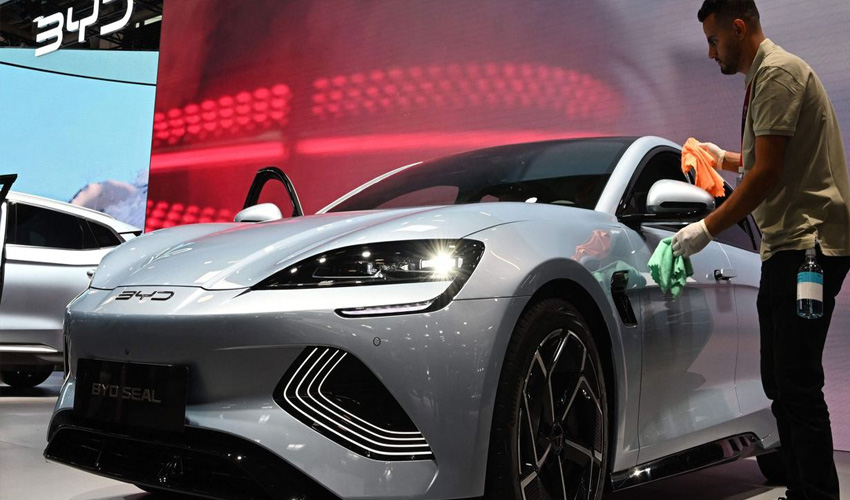Islamabad, Apr 20, 2025: In a groundbreaking development, BYD officially surpassed Tesla in 2023, claiming the title of the largest electric vehicle (EV) manufacturer globally.
This milestone signifies a significant reshaping of the international automobile landscape, with Chinese innovation outpacing long-time market leader Elon Musk’s Tesla.
Spearheaded by visionary founder Wang Chuanfu, BYD’s rise highlights the rapid evolution of China’s EV industry.
Just a decade ago, China was largely dependent on foreign car imports.
Fast forward to today, and the nation is the world’s top car exporter—with BYD at the forefront.
Affordable and technologically advanced models like the BYD Seal, priced below $30,000, are capturing global attention, placing intense pressure on traditional Western auto brands.
Read More: Final 5th-Gen Toyota Supra Variant Unveiled
From Batteries to Electric Cars: BYD’s Unconventional Journey
Launched in 1995 in Shenzhen as a battery production firm, BYD began by supplying cell phone batteries to major brands like Nokia.
With a modest $1 million family loan, Wang Chuanfu nurtured the brand from the ground up.
The turning point came in 2003, when BYD acquired a small automobile firm, pivoting boldly into the EV sector.
Their strategy—building vehicles around their own battery technology—resulted in lower production costs and greater energy efficiency.
By 2009, investor confidence soared when Warren Buffett’s Berkshire Hathaway invested $250 million in the company.
With continued support from China’s “Made in China 2025” campaign, BYD rapidly scaled its operations and market presence.
BYD Beats Tesla in Revenue and Innovation
In 2024, BYD’s revenue hit $170 billion, exceeding Tesla’s $155.5 billion. The company’s valuation surged past $100 billion, outpacing Tesla’s $97.7 billion.
A major factor in this success is BYD’s vertical integration—controlling everything from battery production to lithium sourcing.
UBS reports that BYD’s vehicles cost 15% less to produce than Teslas made in Europe or the U.S.
Although 85% of its sales remain in China, BYD is targeting expansion into Asia, Latin America, and emerging markets.
While U.S. market entry remains challenging due to upcoming trade restrictions, the brand is capitalizing on less saturated regions.
In early 2025, BYD introduced a revolutionary battery capable of five-minute charges with a 450 km range—outpacing many Tesla and Mercedes models.
With this leap in both affordability and performance, BYD electric cars in 2025 are poised to dominate the next generation of global EVs.









